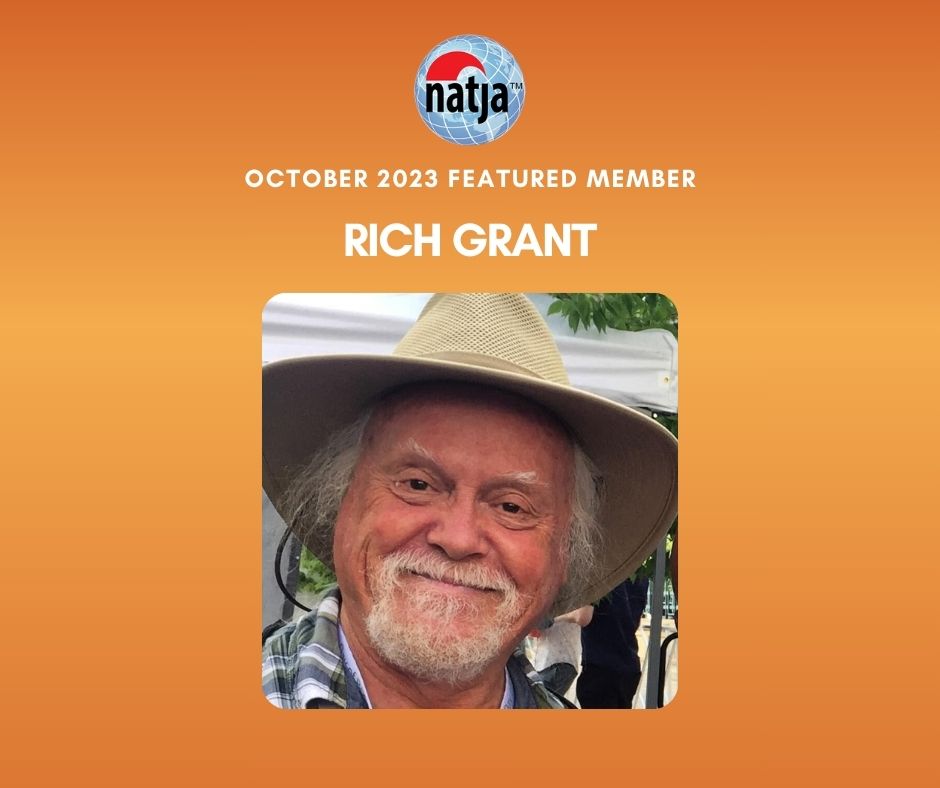In 1972, I moved to Denver as a 22-year-old, pot smoking, pony-tailed hippy driving a VW bug. Fifty years later, I drive a Honda CRV. In between, I worked 35 years for Visit Denver in communications and as a freelance writer.
Today, the times have changed. Writing travel stories for seniors is exactly the same as writing travel stories for 20-year-olds. We both want the same experiences. The only difference is seniors can afford to eat better and drink more.
I won a gold award from NATJA for senior travel in 2021, a bronze from SATW Western Chapter in 2022, and a silver from Western Chapter SATW in 2023 for self-illustrated article.
1. What got you into travel writing?
I had been writing all sorts of articles for several years when in 1979, I took a job in public relations for what is now called Visit Denver. We could smoke cigarettes at our desk, we had a cocktail (sometimes two) every day at lunch, and there were receptions for us somewhere with free food and drink three nights out of five. I knew I had landed safely on the planet where I wanted to be. I continued writing travel articles throughout my 35 year career in travel PR, and after retiring, took it up full-time.
2. What’s the most challenging part of being a travel journalist for you?
The biggest challenge is AI. Rick Steves challenged AI to write a travel article, and he had to admit, it was not terrible. I think travel writers have to become more opinionated, funny, and outrageous to make our work seem like it was written by a human and not a computer. Today we need to remember that when traveling, people use the most valuable things they own: their discretionary time and money. Travel is part of the entertainment industry, and travel writing needs to be entertaining.
3. What is one thing [equipment or personal item] you can’t go without on the road?
I always pack Jim Beam miniatures. It’s shocking how many otherwise fine hotels close their bars at 10 p.m. The beauty of the “miniature” is they are easy to pack in a pocket and allow you to keep conversations going while moving to another location.
4. What’s your most unusual and/or memorable travel experience?
After being mugged and knocked out in Bermuda, I found myself in a hospital with the police asking if they could take my clothes to gather forensic evidence. I said sure, only to realize shortly that now I was in a strange country with no ID, no money … and no clothes. Forensic evidence be damned. Always keep your clothes.
5. How did you learn about NATJA and why did you join?
Like everyone my age, I met Dan Schlossberg on a press trip. He asked me to be a speaker on a travel PR panel at a NATJA convention in Chicago. That night we had a reception on Navy Pier, and at 9 p.m. the bus started back for the hotel. I asked the driver if he was going to go past the club, Chicago Blues, and could he drop me off? He said he could. I asked if anyone else wanted to get off the bus at Chicago Blues. Almost everyone did, and I realized I had found a home in NATJA.
6. What is the best piece of advice you could give to a rookie travel journalist?
Always pack a $100 bill. It can be folded very small and tucked safely just about anywhere, but in an emergency, it carries the power of the U.S. Cavalry. I once got my brother out of a Mexican jail with a hundred-dollar bill.






